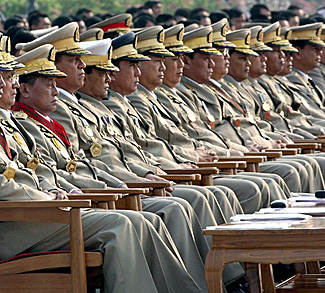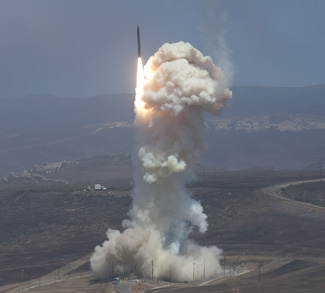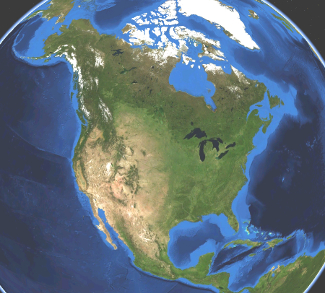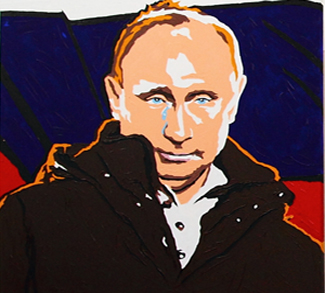FORECAST
Washington’s recent sea change in its Burma policy continues what is fast becoming a new trend: an American foreign policy that stresses the practical over the ideological.
The Burmese leadership’s spotty human rights record is well known at this point. However, what is seldom acknowledged is Burma’s geopolitical importance with regards to energy security and the growing naval arms race between China and India.
Burma’s strategic location and natural gas reserves have thrust it into the middle of China and India’s energy rivalry. China’s critical Kyaukpyu-Kunming pipeline, a project that will do much to shore up Chinese energy security, is expected to be finished by 2013. The pipeline will not only afford China a pretext for naval deployments in the Bay of Bengal, but also alleviate China’s dependence on oil imports shipped through the Straits of Malacca. India has so far responded to the prospect of Chinese military power on its eastern flank by re-doubling efforts to engage Burma in an attempt to counterbalance Chinese influence there.
Given the importance of energy and strategic concerns coalescing around Burma, Washington’s strategy of self-imposed isolation seems less favorable to America’s long-term interests in the region.
Burma’s success in drawing in investment from its less ideologically-inclined neighbors – China and India primarily – has caused a re-think in Washington on whether sanctions alone can accomplish any kind of liberalization of Burmese society. The sanction regime has thus far negatively impacted American interests, even though it remains a domestically popular symbol of standing up to human rights violators. In spite of this popularity, the strategy of sanctions without engagement has hurt the Burmese population at the grassroots level and deprived Washington of influence in an important region.
The fact that the sanctions regime remains in place can be seen as a face-saving measure on the part of Washington. It is likely that the Obama administration is serious about engagement and eager to sanitize American foreign policy and remove the messianic and democratizing bent that characterized the Bush years. However, to unilaterally roll back sanctions at this point would invite more criticism at home, so expect sanctions to remain for the short term until the engagement process shows signs of ‘progress’, no matter how superficial they might be.
Washington’s shift away from a sole reliance on sanctions in the case of Burma hints at a possible long-term shift in American foreign policy.
The medium term international environment is likely to be typified by American hegemonic decline. This means that America will be forced to compete with rising powers – mainly the BRIC countries – for influence and energy resources. Unilateral sanctions, particularly those with ideological motivations, are bound to become rarer in an international environment characterized by multipolarity and greater competition. Thus, we can expect Washington’s recent about-face on engagement to become less the exception and more the rule moving forward. In sum, Washington will be less willing to forego influence to make an ideological point, no matter how much of an ‘outpost of tyranny’ the country in question may be.
SUMMARY OF EVENTS: September 21 – 28, 2009
WORLD
Gold futures rose Tuesday for the first day in four, ending above $1,010 an ounce as a weaker U.S. dollar boosted the metal’s appeal and as demand for gold exchange-traded funds showed improvement. Other metals also rose.
The embattled U.S. dollar is expected to come under scrutiny at a summit of developing and industrialized nations following China-led calls to review its role as a reserve currency.
In a historic shift recognizing the rising influence of China, Brazil and India, the leaders of the world’s top 20 wealthy and developing nations decided that the G-20 will take over the role of preeminent council on global economic cooperation, a function that for more than three decades had been performed by a smaller club of leading industrial countries known as the G-8.
NORTH AMERICA
United States
Jimmy Carter, a former U.S. president, has said that Washington knew about an abortive coup against Hugo Chavez, the Venezuelan president, in 2002, and that it may even have taken part.
The CIA is deploying teams of spies, analysts and paramilitary operatives to Afghanistan, part of a broad intelligence “surge” that will make its station there among the largest in the agency’s history, U.S. officials say.
U.S. authorities closed the world’s busiest land border crossing on Tuesday after a shootout between suspected Mexican human traffickers and U.S. agents, U.S. officials said.
The Federal Deposit Insurance Corp. is weighing several costly — and never-before-used — options as it struggles to shore up the dwindling fund that insures bank deposits.
President Barack Obama is exploring alternatives to a major troop increase in Afghanistan, including a plan advocated by Vice President Joe Biden to scale back American forces and focus more on rooting out Al Qaeda there and in Pakistan, officials said Tuesday.
A fast-growing FBI data-mining system billed as a tool for hunting terrorists is being used in hacker and domestic criminal investigations, and now contains tens of thousands of records from private corporate databases, including car-rental companies, large hotel chains and at least one national department store, declassified documents obtained by Wired.com show.
President Barack Obama’s administration on Wednesday made it more difficult for the government to suppress information on security grounds, amid allegations the power was used to cover up Bush-era excess.
Acknowledging that the past policy of isolation and punishment had failed to produce desired results, Hillary Clinton, the U.S. secretary of state, said Wednesday Washington would now engage directly with Burma’s military government.
In the debate over the PATRIOT Act, the Bush White House insisted it needed the authority to search people’s homes without their permission or knowledge so that terrorists wouldn’t be tipped off that they’re under investigation. However, now that the authority is law, the Department of Justice has used this new power to go after drug dealers.
Police fired canisters of pepper spray and smoke at marchers protesting the Group of 20 summit Thursday after anarchists responded to calls to disperse by rolling trash bins and throwing rocks.
Top U.S. military officer Admiral Mike Mullen on Friday held a secret meeting in Germany with the NATO commander in Afghanistan to discuss a request for more troops, officials said.
Senior U.S. military officials blame Islamabad’s military intelligence, ISI, for providing sanctuaries in Pakistan for the pro-Taliban insurgents who attack foreign troops in Afghanistan.
President Barack Obama and other Western leaders accused Iran on Friday of building a secret nuclear fuel plant and demanded Tehran immediately halt what he called a “direct challenge” to the international community.
CENTRAL AMERICA & THE CARIBBEAN
Honduras
The ousted president of Honduras returned to his country Monday, nearly three months after he was forced from power and into exile by a military-backed coup.
Honduran troops surrounded the Brazilian embassy where ousted President Manuel Zelaya was holed up with dwindling supplies and a few hundred supporters, diplomats and journalists.
A man was shot and killed in a clash between police and supporters of ousted Honduran President Manuel Zelaya, as international pressure mounted on the de facto government to let the leftist return to power.
Ousted Honduran President Manuel Zelaya warned on Friday that tentative talks to end a three-month political crisis would go nowhere unless the de facto leaders who toppled him in a coup restored him to power.
SOUTH AMERICA
Venezuela
Venezuela’s President Hugo Chavez hopes to widen anti-U.S. alliances when he hosts African leaders on a Caribbean island this weekend, but his radicalism and Brazil’s greater economic clout put limits on his appeal.
Washington’s foes Venezuela and Iran are working together to find uranium in the South American nation, a new sign of Venezuelan President Hugo Chavez’s support for Tehran’s nuclear program.
WESTERN EUROPE
Switzerland
Switzerland is rushing to sign an additional tax information deal to secure its removal from a tax haven list later on Thursday, when a meeting of the Group of 20 nations starts.
EASTERN EUROPE
Georgia
Georgia on Tuesday accused Russia of ignoring international law over Russia’s deployment of a coast guard ship in Abkhazian waters and its intention to station border guard vessels there.
Poland
The United States aims to establish missile bases in Poland, after having scrapped plans fiercely opposed by Russia to deploy a missile shield in the country, a Polish newspaper reported Friday.
Russia
Russia’s top general said on Monday that plans to deploy missiles in an enclave next to Poland had not been shelved, despite a decision by the United States to rethink plans for missile defense in Europe.
The Kremlin-backed chief of Russia’s turbulent Chechnya region said his forces were fighting U.S. and British intelligence services who want to split the country apart, according to an interview published Thursday.
MIDDLE EAST
Iran
President Mahmoud Ahmadinejad told a military parade in Tehran on Tuesday Iran would “cut off the hands” of anyone who attacked the country.
Iran’s president has launched a scathing attack on Western powers, accusing them of spreading “war, bloodshed, aggression, terror and intimidation” in the Middle East and Afghanistan.
Israel
Israel has not given up the option of a military response to Tehran’s nuclear programme, senior officials said on Monday, after Russia’s president said his Israeli counterpart assured him it would not attack Iran.
EAST ASIA
China
State-run Chinese companies are selling gasoline to Iran, a move that could undermine U.S. pressure on Tehran to give up its nuclear program, traders and a newspaper report said on Wednesday.
South Korea
South Korean President Lee Myung-Bak Monday offered North Korea a “grand bargain” to give up its nuclear program in return for aid and security guarantees, warning Pyongyang the proposal may be its last chance.
South Korea Wednesday launched two new high-speed patrol boats armed with missiles to guard the border with North Korea, as the incoming defence minister warned of ongoing military tensions.
CENTRAL ASIA
Turkmenistan
The president of Turkmenistan, a major gas producer that has been in dispute with Russia over exports for much of the summer, has called for an international pact to ensure the security of global energy supplies.
SOUTH ASIA
Afghanistan
The top U.S. and NATO commander in Afghanistan warns in an urgent, confidential assessment of the war that he needs more forces within the next year and bluntly states that without them, the eight-year conflict “will likely result in failure,” according to a copy of the 66-page document obtained by The Washington Post.
AFRICA
Guinea
Around 20,000 people took to the streets of Guinea’s second city Thursday, police said, in the biggest opposition demonstration to date against the West African country’s military ruler.
Morocco
The security services in Morocco have arrested 24 members of a “terrorist network” linked to Al-Qaeda that recruited volunteers for suicide bombings in Iraq, the interior ministry said Wednesday.
Sudan
More than 100 people have been killed in clashes in the Jonglei state in southern Sudan, officials said Monday.
Yemen
Yemeni government troops were locked in heavy fighting on Thursday with Shiite rebels in northern Yemen where at least 50 people have been killed in the past two days, military and tribal sources said.




